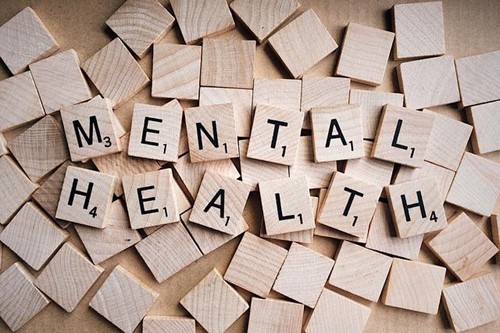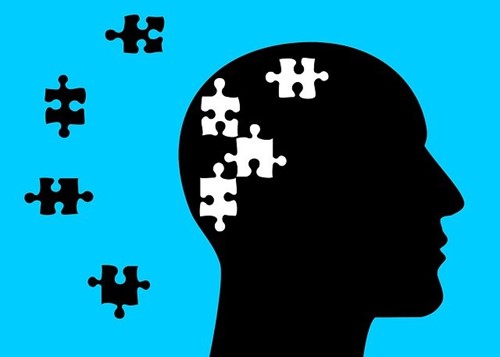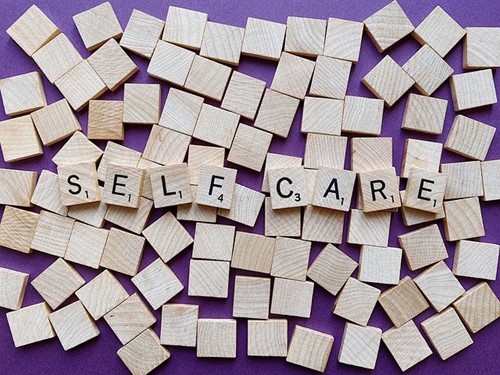According to the World health organisation, health is defined as a state of complete mental, physical and social well-being. This means that one has to have a healthy mind and body to be healthy. However, mental health is often ignored globally, and it is especially significant when people with mental health disorders become parents. This is because now they are responsible for raising children and their physical and mental well-being.

Mental health and parenting:
Starting or raising a family can negatively impact parents' mental health, which can, in turn, influence the child’s growth and development. According to the data shared by the Royal College of Physicians UK, approximately 57% of men and 68% of women with mental illnesses are parents. About 10% of first-time fathers also experience depression, and about 30 out of 1000 women experience serious depression in pregnancy and the postpartum period. This staggering number gives testament to the severity of the condition.
Common symptoms of mental disorders in UK families include:
- Depression
- Anxiety
- Postpartum psychosis
- Post-traumatic stress disorder
- Adjustment disorder
- Substance and alcohol use disorder
- Schizophrenia
- Intimate partner violence and abuse
- Obsessive-compulsive disorder
- Bipolar disorder
- Panic disorder
- Personality disorder
Depression:
Depression can result in low motivation, loss of productivity, changes in sleep and weight, and feelings of despair. Depression and anxiety should be recognised early as prompt treatment or earlier diagnosis results in a good functional outcome with complete resolution of symptoms. Some common signs and symptoms of anxiety and depression include 1. A persistent low mood
- Sadness and despair
- Lack of self-esteem
- Loss of motivation
- Low energy levels
- Changes in weight
- Sleep disturbances
- Crying spells
- Substance use
Some causes of depression include:
- Lack of family support
- Fast-paced life
- Looking at other people's perfect life on social media
- Financial strain and losses
- Covid 19
- Urbanisation
- Childhood neglect
- Substance use disorder
- Work stressors
Anxiety:
The faster the pace of life is, the more anxiety it can cause. Hectic routines, no support, and financial difficulties are all stressors that cause anxiety. Some of the causes include:
- Fast-paced life
- Covid leading to social isolation
- Lack of family support
- Nuclear families
- Intimate partner abuse
- Work stressors
- Loss of job or financial worries

Substance use disorder:
There is a high incidence of substance and alcohol use disorder in the UK. Children start experimenting with drugs at a younger age to forget, have pressure to fit in, and appear cool. In the year 2018, according to the national survey, there was a 17% increase in deaths from drug addiction, and 9.4% of adults and 20.4% of young adults admitted to using recreational drugs.
Cannabis, cocaine, and nitric oxide are the commonly used drugs, while there is a decrease in the use of ecstasy and amphetamines. Substance use has resulted in a high incidence of HIV, hepatitis B, and C viruses. We understand that substance use can destroy a person’s life and the lives of those around him. It can also negatively impact one’s mental and physical health, emotions, and functioning.
Intimate partner abuse and sexual abuse:
It is one of the leading causes of mental illnesses, and anyone can be abused irrespective of age, gender, colour, ethnicity, and social status. It is important to recognise the signs of abuse and seek help as soon as possible to protect yourself.
Domestic abuse is not always physical. It may include
- Sexual abuse
- Online abuse
- Coercion or gaslighting
- Emotional abuse
- Financial control
- Threats
- Intimidation
Lack of support, education, and the belief that women do not have any choice lead to abuse. In addition, other important causes include substance use or alcohol use disorder in the abuser.
Postpartum psychosis and post-traumatic stress disorder
Postpartum psychosis occurs in a small subset of mothers after delivery. Lack of support, absence of proper antenatal and postnatal visits, and previous mental disorders can all precipitate this condition.
Post-traumatic stress disorder can occur after repeated trauma, particularly sexual abuse, childhood trauma, or intimate partner abuse. It may lead to panic attacks and poor everyday functionality.
Solutions to mental health problems:
Some mental health disorders like depression and anxiety are treatable. Others may need lifelong management. It is possible to control symptoms to lead a happy, productive life.

Essential lifestyle changes to manage your health condition
1. Sleep:
Sleep plays a key role in mood regulation. Adequate sleep rejuvenates and freshens our mind and body. Mental health disorders are closely linked with sleep disturbances. Some important aspects of taking care of your health may include
A. Sleeping and waking up at the same time daily to keep regular sleeping hours
B. Do not use your phone, tv, and restrict screen time to 60 minutes before bedtime
C. Do not exercise in the late evening
D. Limiting coffee, alcohol, and smoking and avoiding it after the afternoon
E. Do not eat a heavy dinner
F. Keeping the room temperature comfortable
G. Bright light therapy in the morning by opening the curtains
H. Mattress quality help decrease sleeping disorders.
2. Diet:
A healthy body is essential for a healthy mind. A well-balanced diet can do wonders for one's health.
A. Cut down on fatty and processed food
B. Increase proteins and minerals
C. Try drinking plenty of water and fresh juices
D. Restrict tea and coffee intake
3. Exercise
Regular physical exercise releases endorphins and serotonin, which are happy hormones. In addition, endorphins are potent painkillers.
Regular exercise and at least 10,000 steps daily
A. Regular exercise and at least 10,000 steps daily
B. Yoga, mediation, swimming, and cycling are all beneficial
C. Deep breathing exercises and stress balls or other relaxation techniques.
4. Cultivate a hobby
Cultivating a hobby can reduce anxiety, increase your feelings of self-worth, and bring joy to your life. Painting, drawing, or any other hobby is advisable as therapy.
Seek professional help:
Your health is important for your well-being and happiness. Please do not hesitate to seek professional help. There are many treatment options available, and trained healthcare professionals will decide the best possible treatment that is exactly tailored to your needs. Some of the possible therapies that may be offered include:
- Psychotherapy
These include talking to the patient and forming an important management component. Some of these therapies include
- Cognitive-behavioural therapy.
It is an effective coping strategy used worldwide and helps us rethink our behaviour to achieve a positive change in ourselves.
- Interpersonal therapy
- Family-focused therapy
- Medications
Medications like anxiolytics, antidepressants, mood stabilisers, and antipsychotic drugs are commonly prescribed to manage mental health conditions. They are generally well-tolerated and have minimal adverse effects. However, alongside these treatments, the best supplements for brain health can support cognitive function and overall mental well-being.
A word from us:
Recognising the signs and symptoms of your disorder is the first step in improving the quality of your life. Please involve your family and friends and share your worries and thoughts.
If you or a loved one are struggling with a mental health disorder, please do not hesitate to contact us for more information. Please remember that it is important to seek help. Without management by skilled professional experts, symptoms are unlikely to improve and will continue to have a negative impact on relationships. Please remember we are available round the clock and are just a click or phone call away. Please call us to get the chance to live your life to the fullest.